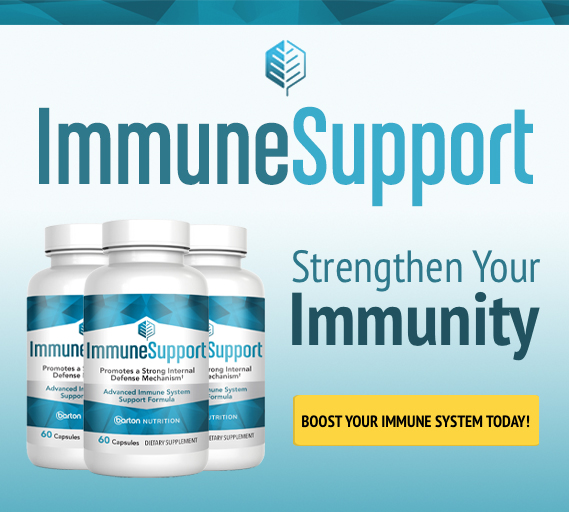Taking Back Your Life From Adrenal Fatigue
Karen is in her forties, very active at work and play. Over the past several years since her husband died, she has had a lot of stress with the loss of their home and many other problems. For several months, she has not been able to sleep well and she is tired all day. She laments, “I feel like I’m half-awake all night and half-asleep all day! I’m sick and tired of being sick and tired.” What is worse, she is gaining weight and feeling hopeless.
While the complaint of fatigue is among the most common for visiting a doctor, there are many reasons for it. One of the most common is “adrenal fatigue.”
This term conjures-up images of the adrenal glands working as hard as they can and just getting pooped-out. However, the glands don’t really get tired. Rather, the cells in the body react to long-term high levels of stress hormones by blocking their effects.
Cortisol, the primary stress hormone, affects every cell in the body.
- Over time it suppresses the immune system, allowing more infections
- Changes the neurotransmitters in the brain, causing depression and anxiety
- Causes insulin resistance, which can lead to diabetes
- Prevents the use of fat for energy leading to easy fatigue and hypoglycemia
With all these effect. it is no wonder people with chronic stress have such a multitude of symptoms! Often, these symptoms are vague and general, but abnormalities don’t show up in the usual tests done by doctors. The patient then is told, “There is nothing wrong with you.” and goes home discouraged. Many people come into my office just hoping to have some terrible abnormality on the test so at least there will be something wrong.
Distinguish the Difference
There are a variety of reasons for being tired. Some of the more common ones are adrenal fatigue, low thyroid, chronic infections and metabolic disorders, such as diabetes. The difficulty is that these may overlap in any individual. Some ways to distinguish them are:
| ADRENAL FATIGUE | Low Thyroid | Chronic infections | Metabolic disorder |
| Caffeine causes heart racing | Slow, not sleepy | Pain | Headaches |
| Feeling overwhelmed | Hair falling out | Muscle aches | Easily fatigued |
| Anxiety | Constipation | Poor sleep | Better with food |
| Depression | Dry skin | Intermittent | Worse after eating |
| Weight gain around the middle | Cold hands/feet | Weight loss or gain | Sleeps well |
| Hypoglycemia | Low body temp. | Fevers | Weight gain |
| Not rested with sleep | No weight gain | Chills | |
| Intermittent infections | Sweats |
Turn Around Fatigue
It probably took a long time to get to the point of fatigue, so it usually takes a while to overcome it. First and foremost, it is essential to reduce stress and then general lifestyle changes are necessary. Lastly, supplements and herbs will be very helpful.
Medications
All stimulants affect the adrenal glands. Medications are especially hard on these glands. Avoid sleeping pills and medications for ADHD, depression and anxiety. All of these change the neurotransmitters in the entire body. Most of them affect the adrenal glands directly through this mechanism. Pain medications are acceptable, but generally don’t work for the pain associated with adrenal fatigue.
Stress reduction
The most important part about stress reduction is to live in the present. The large majority of the things we worry about never happen after so much energy and time is wasted on them. Further, and most important, we too often hold on to things in the past that hurt us. The ability to forgive everything in the past is essential to be able to live in the present. This may take some time and counseling, but is well worth the effort.
Another important aspect of stress reduction is to have goals and be working towards them. You must have several areas of growth in your life: business, spiritual, family, hobbies and so forth. Recognize your potential as a child of God and all the good you can do in the world. The only limits are the ones you place on yourself.
Exercise
It cannot be emphasized enough that exercise is important for the treatment of adrenal fatigue. Many studies have shown that exercise is the only mode of treatment that consistently helps. Daily exercise in some form is best if the type of exercise is varied. Mostly, heavy exercise to sweat three times per week is sufficient.
Food
The foods that increase insulin production also affect the adrenal hormones. It is wise to avoid sugars, starches and artificial sweeteners. Stimulant foods should also be avoided: coffee, tea, soda and energy drinks are counter-productive.
High-fiber foods are helpful for the regulation of blood sugar which helps smooth-out adrenal function. Burning fat produces “ketones,” which help stabilize the nervous system. Therefore, a “meat and vegetable” diet with little starch or sugar is best and the more raw vegetables, the better.
Vitamins
The vitamins that help the adrenal glands include:
- Pantothenic acid (vitamin B5) – this is best taken in a B-complex (B-100)
- Vitamin C – 500 mg three times per day is best
- Trace minerals – a good quality mineral supplement will have the right combinations and amounts
Herbs
The herbs that help the adrenal glands are called “adaptagens.” This means they help the glands and tissues of the body “adapt” to the stress. There is a normal “circadian rhythm” of the glands that secrete the cortisol on the morning allowing people to wake up with lots of energy. As the hormone declines in the evening, people get tired and go to sleep. This rhythm is usually lost when people get fatigued. The following herbs help to restore this rhythm:
- Ginseng (Korean, American, Siberian)
- Ashwaganda
- Licorice Root
- Eleuthero
- Rhodiola Rosea
Most herbal adrenal products will contain some combination of these. Some of these preparations may also contain “adrenal extract” of some sort. These “glandular” supplements are the actual adrenal hormones from cows or pigs. Some people find this to be helpful, but others have a bad reaction. It isn’t dangerous, just be aware that if you don’t seem to respond well, then find an adaptagen without the glandular extract.
Sleep
Adequate rest is essential to repairing the effects of stress and fatigue on the body. During the times of sleep the brain chemicals are restored and neural pathways are created. Moreover, the adrenal gland itself has a rest time, which produces the circadian rhythm of the body. The problem is too much adrenal hormones prevent sleep. Here are some suggestions that often help my patients to sleep:
- Go to bed earlier
- Get up earlier, even if you are tired
- Don’t take naps
- Exercise every day to sweat
- Use melatonin, between 1 and 6 mg about 1 hour before bed time
- Take magnesium, 400 mg before bed
- L-theanine at night may help
- Do not watch television 1hour before bed, but reading is OK
Armed with the above tools, you should be able to work out a program to get back to a healthy, vibrant life. Karen did. She found that the herbal adaptagens helped her to sleep much better. With a change in diet and increased exercise, she is now doing well off of all her pain medications and sleeping pills from adrenal fatigue.
Remember, the body is made to heal.
As long as you provide the right environment and resources, the body will always heal. It may be hard, especially at first, and it may take a long time, but the rewards are definitely worth the effort!
Helping others overcome natural health obstacles is what brings us the most joy! What obstacles are you facing? What brings you the most joy?
Dr. Scott D. Saunders, M.D. (Ask-an-MD) is a practicing physician, specializing in preventative healthcare, who utilizes eclectic health care for the whole family, including conventional, orthomolecular and natural medicine. He is also the medical director of The Integrative Medical Center of Santa Barbara in Lompoc, CA. He went to UCLA medical school and is board certified in family medicine. View natural remedies with Dr. Saunders at http://drsaundersmd.com/


























